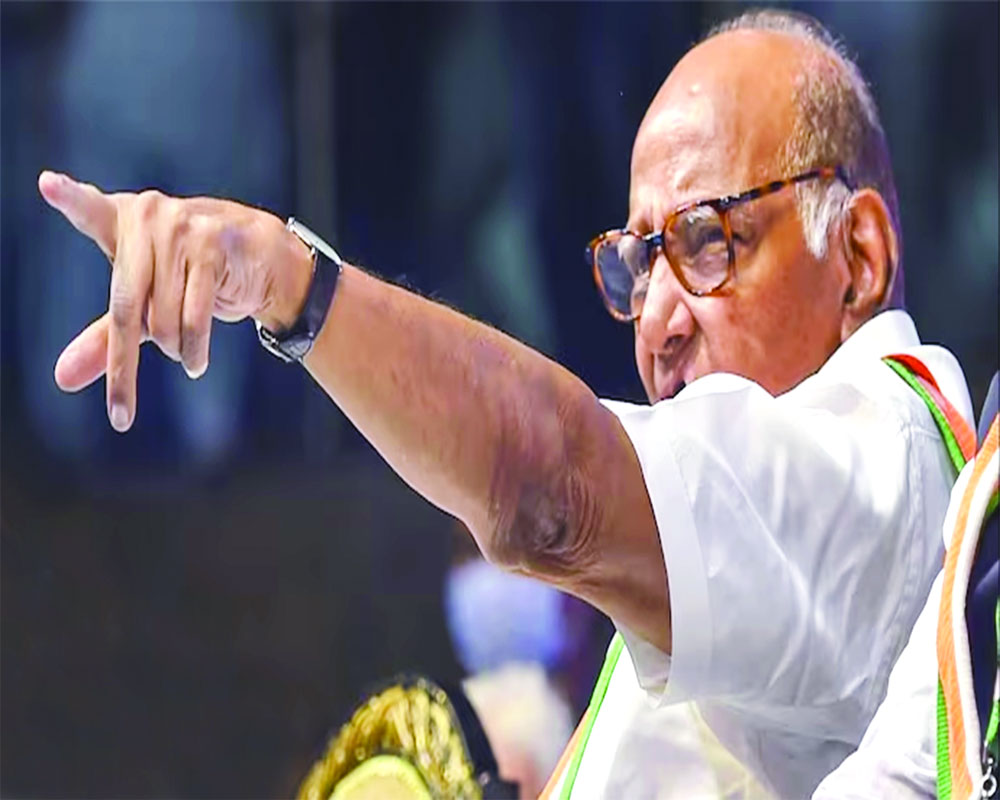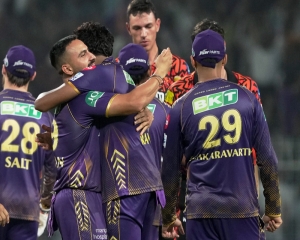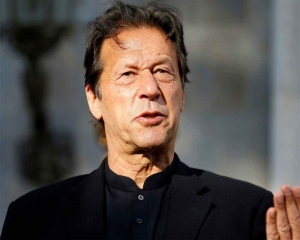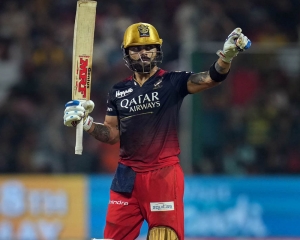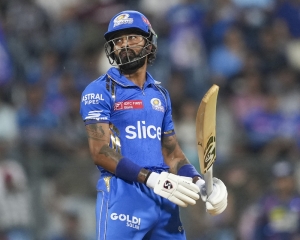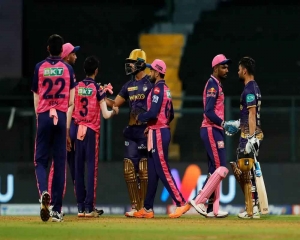Resilience and fortitude have undoubtedly played vital roles in Pawar's political career, but alongside these traits, he has also demonstrated a level of flexibility that teeters on the line between treachery, cunning, and disloyalty, writes Navin Upadhyay
In his autobiography, 'Leading from the Front', Maratha strongman Sharad Pawar wrote, 'Crisis tests the mettle of leaders. It is during challenging times that true leadership emerges, guiding us towards solutions and offering hope to those in need.' These lofty words encapsulate Pawar's own political journey, as he now finds himself at the center of a political storm orchestrated by none other than his own nephew, Ajit Pawar, marking a full circle in his political career.
Back in 1978, a young and ambitious Sharad Pawar rebelled against his own party, the Congress, and his mentor, Vasantdada Patil, forming a coalition government with the Janata Party and the Peasants' and Workers' Party of India. This opportunistic move propelled him into his first tenure as the Chief Minister of Maharashtra, setting a record as the state's youngest CM at the age of 38—a record that has stood the test of time.
However, after forty-four years, the aging stalwart of Maharashtra politics faces a new challenge from within his own family. Ajit Pawar, his own nephew, has orchestrated treacherous political maneuvers that have left Sharad Pawar at a crossroads. Senior Pawar may audaciously claim that age is just a number and whether he is 82 or 92, he would remain as effective as ever, but the reality could present a different picture. Age and health concerns are not the only obstacles that could impede the Maratha strongman. The real challenge lies in finding experienced recruits capable of replacing influential figures like Ajit Pawar, Chaggan Bhujbal, Praful Patel, and Sunil Tatkare, among others, who formed the backbone of the NCP. These leaders wielded considerable influence in their respective regions and mobilized significant resources for the party. With central agencies keen to pounce on anyone aligning with Sharad Pawar, regaining supremacy in Maharashtra politics will be an uphill battle for the veteran leader.
Nevertheless, it would be imprudent to underestimate the political prowess and cunning of Sharad Pawar. Despite criticisms of his shady political maneuvering and questions surrounding his credibility, the octogenarian leader continues to command immense goodwill among the people. He possesses the ability to leverage this public sentiment to his advantage if he strategically plays his cards right. 'Two incidents stand as a testament to his mass appeal and ability to connect with the common people. One such incident occurred during a Lok Sabha by-election rally in Satara in October 2019, where heavy rainfall drenched the venue. Undeterred by the downpour, Pawar made a powerful statement by refusing to use an umbrella while addressing the crowd. This act of resilience and solidarity resonated deeply with the masses, garnering admiration and highlighting why he is revered as a leader of the people. The incident quickly gained traction on social media, becoming a turning point in the election campaign. The NCP candidate Shriniwas Patil won the poll by a huge margin. The viral video of Pawar braving the rain and delivering his speech for ten minutes undoubtedly played a role in altering the course of the election.
Another incident in September 2019 showcased Pawar's influence and power. When he announced his intention to walk to the Enforcement Directorate (ED) office in Mumbai to participate in a probe, the Maharashtra government and state police were alarmed, fearing a potential law and order situation. This was Sharad Pawar’s way of taking on the ED and its perpetual threats. The state government and the Mumbai police pleaded with Pawar to cancel his visit, and he complied. This episode further highlighted the clout and respect the veteran leader commands in Maharashtra.
These episodes serve as a testament to Pawar's ability to fight back and adapt to challenging circumstances. It would be premature to write his political obituary, especially when the last chapters on Ajit Pawar's rebellion and Eknath Shinde's dilemma are yet to be written.
Amidst every crisis, there lies an opportunity. Sharad Pawar may harbor hopes that the BJP-NCP-Shinde alliance will eventually encounter internal contradictions and clashes of interest. Ajit Pawar's ambitious claim to contest 90 out of the 280 assembly seats could potentially exert pressure on Eknath Shinde to settle for nothing less. Such a scenario could leave the BJP with a diminished seat share, reducing their current hold on 105 MLAs to a mere 100. The BJP will never accept such a scenario come what may. On the other hand, if Shinde and 15 other supporting MLAs were to face disqualification, Shinde's bargaining power would dwindle, allowing the BJP to assert dominance within the alliance.
This turn of events could potentially lead to a realignment in Maharashtra politics, as some disillusioned former Shiv Sena members, if not received warmly by Uddhav Thackeray, may seek refuge within the NCP. This resulting consolidation of the party and the ensuing chaos in the state's political landscape would present a golden opportunity for Sharad Pawar to rebuild his own base and reinforce his influence.
Resilience and fortitude have undoubtedly played vital roles in Pawar's political career, but alongside these traits, he has also demonstrated a level of flexibility that teeters on the line between treachery, cunning, and disloyalty. These qualities have been employed strategically to secure victories in his political battles. Pawar's ability to navigate complex situations and make calculated decisions has been instrumental in his long-standing successes., . It is within this complex tapestry of qualities that his leadership style and political acumen have emerged. These are some of the qualities that also shaped his childhood and formative years.
Born on December 12, 1940, in the town of Baramati in Maharashtra, Sharad Pawar was raised in a middle-class family. His parents, Govindrao Pawar, and Shardabai Pawar, instilled in him the values of hard work and perseverance from a young age. These core values would become the guiding principles of his political career.
Pawar's education began in local schools in Baramati, where he displayed exceptional academic prowess. Later, he pursued higher studies in Pune, attending Brihan Maharashtra College of Commerce. It was during his college years that Pawar's interest in politics took root, and he began to actively engage in student politics as a sophomore.
Sharad Pawar's journey into the realm of politics gained momentum during his time at Brihan Maharashtra College of Commerce. Known for his charisma, intellect, and persuasive oratory skills, he quickly became a prominent figure in student politics. Pawar championed the cause of students, addressing their concerns, and working towards improving their educational experience. His ability to connect with his peers and articulate their aspirations set him apart as a natural leader.
Inspired by the ideals of the Indian National Congress and the charismatic national leaders of the time, Sharad Pawar joined the party in the 1960s. Pawar's exceptional organizational skills propelled him into leadership positions, both within the student wing and the party itself.
During his early political years, Pawar found mentorship and guidance under the influential leader Vasantdada Patil, who recognized Pawar's potential and took him under his wing. This mentor-protégé relationship played a significant role in shaping Pawar's political acumen, providing him with invaluable insights into governance, leadership, and the intricate dynamics of Maharashtra politics.
Sharad Pawar's rise to prominence within Congress and Maharashtra politics gained momentum in the late 1960s and early 1970s. Pawar's focus on rural development, and agricultural issues, and his empathetic approach endeared him to the masses, solidifying his position as a leader who championed the causes of the common people.
In 1978, Sharad Pawar embarked on a momentous journey that would solidify his reputation as a political maverick. Disillusioned with certain aspects of his own party, Pawar rebelled against the then Chief Minister Vasantdada Patil and formed a coalition government with the opposition parties—the Janata Party and the Peasants' and Workers' Party of India. This bold move showcased Pawar's political astuteness and his ability to build alliances to achieve his vision of a better Maharashtra. At the age of 38, he became Maharashtra's youngest Chief Minister, setting a record that still stands to this day.
Pawar's tenure as Chief Minister witnessed several significant initiatives and reforms, including measures to improve rural infrastructure, agricultural development, and the empowerment of marginalized communities. His focus on inclusive governance and his ability to navigate the complex dynamics of coalition politics earned him both praise and criticism. Throughout his term, Pawar displayed resilience and determination in the face of various challenges, solidifying his position as a political force to be reckoned with.
Sharad Pawar's early years laid the foundation for his remarkable political journey, one marked by resilience, dedication, and a deep-rooted commitment to public service. From his humble beginnings in Baramati to his rise as a visionary leader in Maharashtra and Indian politics, Pawar has consistently demonstrated his ability to connect with people and articulate their aspirations.
Sharad Pawar's life is a testament to the unwavering spirit of a leader who has faced and conquered numerous challenges, emerging even stronger. His ability to navigate complex political landscapes has become the hallmark of his legacy. Through the highs and lows, he has exemplified resilience, courage, and an unyielding pursuit of power. Pawar's journey serves as a powerful reminder that true leadership is forged in the crucible of challenges.
In his book 'Leading from the Front,' Pawar skillfully captures the true essence of leadership, highlighting that it goes beyond mere positions of power. It involves embracing responsibility, fearlessly facing challenges, forging alliances, and tirelessly striving for the welfare of those we serve. As he endeavors to silence his critics and revive his party, Pawar will rely on these qualities and more. However, he faces daunting odds in his path forward.
(Navin Upadhyay is the Executive Editor of The Pioneer)













